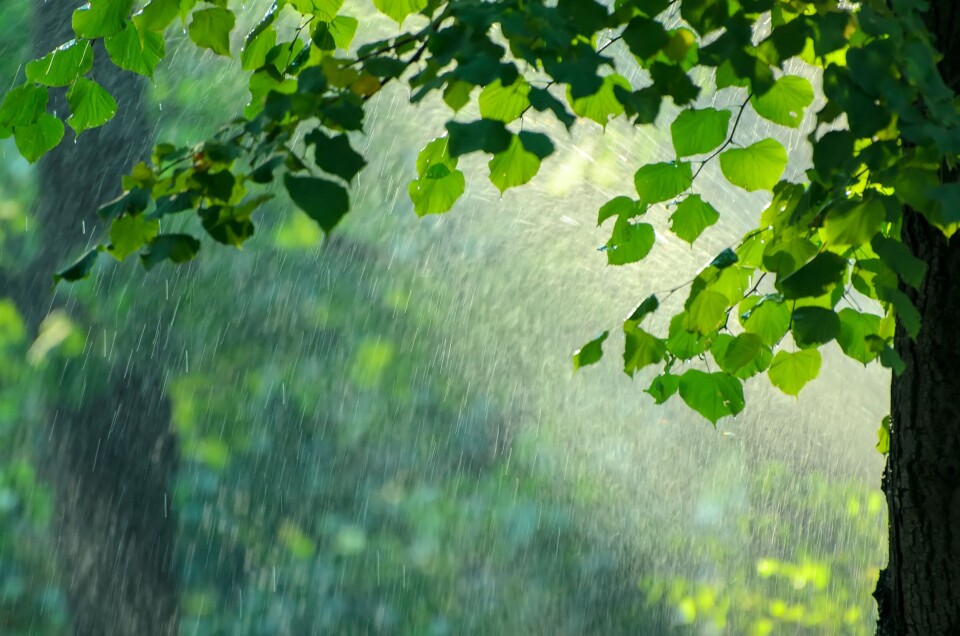-
France braces for a chilly end to 2025
French weekly weather forecast December 29 - January 2 sees temperatures drop to below freezing in many areas
-
'Remove traffic lights and road signs to encourage safer driving', says Louis Sarkozy
Son of former president says it would encourage 'more responsible' driving
-
Culture, sport and events: What's new in France in 2026
Including the Bayeux Tapestry, Six Nations and new museums
What impact will May rain have on France’s water deficit?
Around three-quarters of France’s water tables were at below-normal levels in April

Forget April showers – this year France seems to be having May downpours.
After an unsettled start to the month, Friday (May 12) - and the weekend - is expected to see more storms and rain.
It comes with the parts of the country under drought restrictions after a record-breaking dry spell over the winter.
So, what impact will the current rain have on the water deficit across the country?
Difference between ground and surface water levels
Recent reports say around three-quarters of France’s water tables are at a below-normal level, and this comes before the dry months of summer.
But Serge Zaka, a leading agro-climatologist, says May’s downpours will have little impact on improving this.
“What happens at the surface is not necessarily linked to what happens at depth,” he said.
Groundwater levels have stopped refilling since April (and even before then had little rainfall to replenish themselves with), with rainfall unable to reach them.
“This rainfall came a little too late for the water tables, but had a very significant impact on the soil," said Simon Mittelberger, a climatologist at Météo France.
The rain has been soaked up by plants, vegetation and crops, and fed into the rivers that were running out of water.
Surely then, this is helpful? Well, not as much as it might first appear.
Mr Zaka describes the situation as “counter-intuitive”: many departments will still be issued with drought restrictions despite the presence of water on the surface, because of the low water table levels, which, in turn, could lead people not to respect the precarity of the situation.
The good news is that the rain has removed the need for farmers to use precious water on crops during the latter part of spring. Also, a host of areas susceptible to forest fires have been drenched by the rain.
Read also: Is your French property in newly declared drought ‘disaster’ zones?
Southern France ‘has a climate like Marrakech’
Those in the south of France may be reading this and scratching their heads, wondering if this article is about the same country they live in.
This is because there is a great difference in rainfall between the north and south of France, particularly in coastal areas.
In Marseille, "it has rained 26 mm since January 1 – that's what fell on May 6 alone in Paris," said Mr Zaka, who describes "a France cut in two,” by the rain.
Read also: Firefighters forced to get water from sea in drought-hit south France
The Mediterranean rim “has not seen rain all winter and it's still going on," said Cyrille Duchesne, a forecaster at La Chaîne Météo. “The south has a climate like Marrakech!” he added.
The Pyrénées-Orientales department, which saw some of its communes reach the highest ‘crisis’ drought restrictions this week, has only received 250mm of rainfall over the last year, as opposed to the normal 600mm.
In the north of France, between 70% and 100% of agricultural soils (areas where crops are grown) have been replenished – in some areas of the south, this is around 5% and 10%.
Après la mise à jour des chiffres de la sécheresse 🇪🇸, nous vivons surement une catastrophe agricole inédite en 🇪🇺 (depuis 1945 au moins) :
— Dr. Serge Zaka (Dr. Zarge) (@SergeZaka) May 11, 2023
➡️80% de la production concernée
➡️5 MILLIONS d'hectares de céréales perdus (4.2 fois la taille de l'Ile de France). Je suis sérieux !… pic.twitter.com/E1nhu2POLz
What will the rest of May bring?
Overall, the rainfall will bring some respite through replenishing soils but will have relatively little impact over summer drought restrictions, particularly in the vulnerable south.
As for the rest of the month, rain is predicted to fall across the country throughout the weekend – although the number of departments facing a storm warning will drop by Saturday (May 13) – and at the very least into next week.
Although this May is colder and wetter than last year’s (where temperatures were almost 3c above average), rainfall will have to be persistent to reach the records set in the early 1980s, which seems unlikely considering the sporadic nature of the weather over the past couple of months.
Related articles
Church in drought-hit southern France organises a ‘make it rain’ march
‘Face the reality’: France ‘must prepare’ for +4C global warming
























